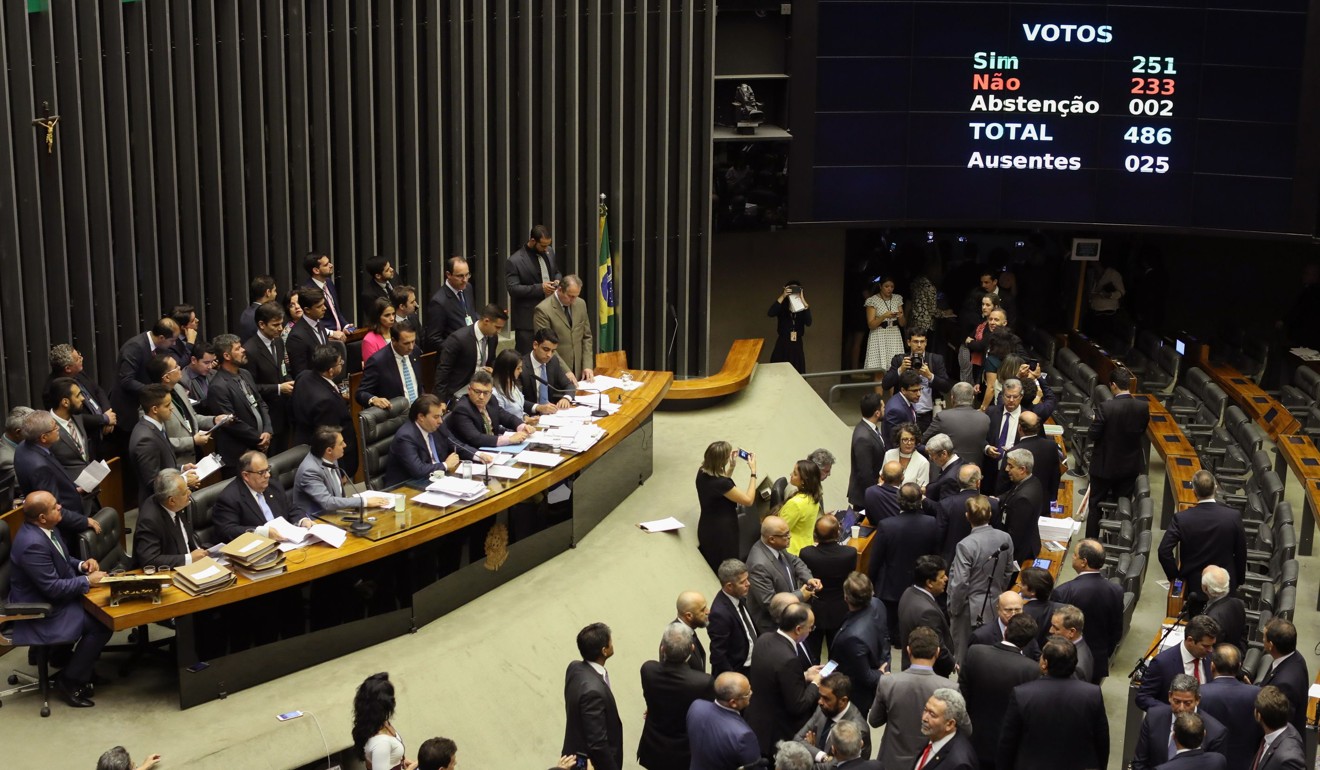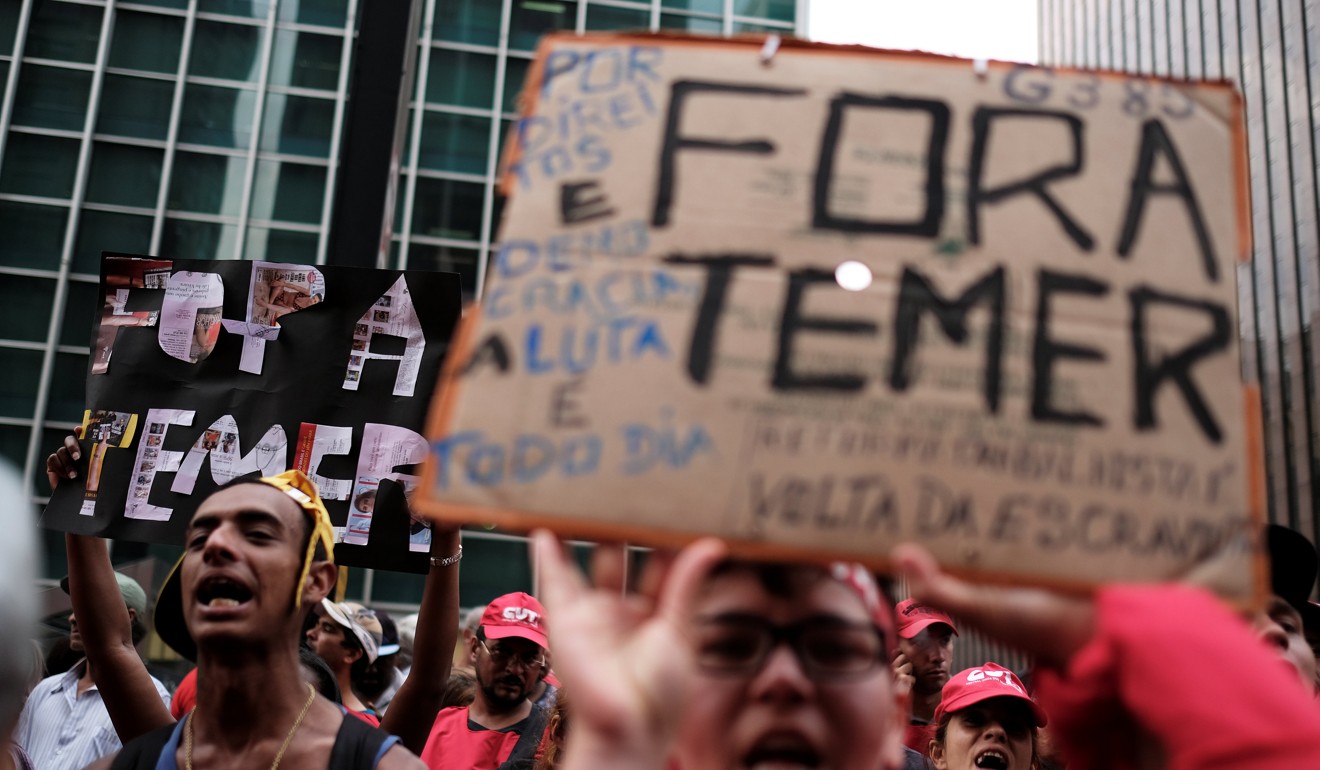
Brazil’s President Temer survives congress vote on whether to allow corruption charges
Brazil’s President Michel Temer survived a key vote Wednesday night on whether he should be tried on corruption charges, mustering support in the lower house of Congress despite abysmal approval ratings and widespread rejection among his countrymen.
To avoid being suspended and put on trial for charges of obstruction of justice and leading a criminal organisation, the president needed the support of at least one third of the 513 deputies in the Chamber of Deputies.
He reached the threshold of 171 about two hours into the voting. The final tally was 251 in support of Temer and 233 against. The remaining were abstentions and absences.
Temer survived a similar vote in August on a separate bribery charge.

The opposition, which spent much of the day manoeuvring to postpone the vote, blasted Temer.
“I vote with more than 90 per cent of Brazilians who have already convicted Temer’s corrupted administration,” said lawmaker Luiza Erundina.
While it was a clear win for Temer, the president has become so weakened by repeated scandals that it remains to be seen whether he can muster support for key reforms. Temer, then vice-president, took over last year after President Dilma Rousseff was impeached and removed from office. His term goes until December 31, 2018.
Many feel the administration lacks legitimacy because of how Temer came to power. Temer’s approval rating is around 3 per cent, according to recent polls.

In both votes, the number of supporters came well below the 308 votes, or three-fifths of the chamber, he would need to pass major reforms such as a proposed overhaul of the pension system.
Congressman Alessandro Molon, who voted against Temer, summed up the predictions of many political observers after the vote.
“We are going to be stuck with a lame duck president for one more year,” Molon told The Associated Press. “He is not getting what he wants from this Congress because of the elections. And we are not going to get an agenda that is good for Brazilians, who reject Temer.”
For several hours Wednesday, many opposition lawmakers refused to enter the chamber, hoping to deny the necessary quorum and delay the vote into the night, when presumably more Brazilians are watching television. Many stations carried the vote live, forcing deputies to decide whether to publicly support a deeply unpopular leader with elections looming next year. All 513 seats will be up for grabs.
Earlier in the day, Temer was hospitalised briefly for a urinary obstruction, but emerged smiling and flashing two thumbs up.
The charges against him stem from a mammoth corruption investigation that began as a probe into money laundering and ended up uncovering systemic graft in Brazil’s halls of power. Dozens of politicians and businessmen have been jailed in the probe.
Prosecutors allege Brazil’s government was run like a cartel for years, with political parties selling favours, votes and plum appointments to powerful businessmen. They say that Temer took over the scheme when he took power last year, after his predecessor was impeached and removed from office, and that his party has since received about US$190 million in bribes.
Temer denied the charges and contends the prosecutor who brought them had a grudge against him. In an address to lawmakers Wednesday, Temer’s lawyer, Eduardo Carnelos, said the latest indictment contained no proof and was so confusing that it “assaults the Portuguese language, it assaults logic.”

